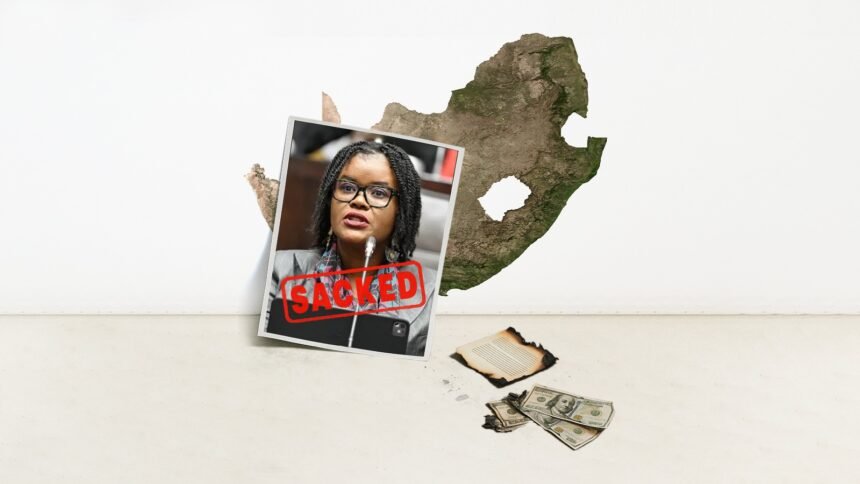South Africa’s President Cyril Ramaphosa may not be the flashiest leader in African politics, but if survival were a sport, he’d have Olympic potential. This week, the embattled president pulled off a deft political maneuver: sacking Higher Education Minister Nobuhle Nkabane just in time to rescue his coalition from collapse and push through a crucial budget vote.
The move wasn’t just about numbers. It was a public relations tightrope walk and a test of his already strained alliance with smaller coalition partners. Nkabane had been under a storm cloud for weeks, dogged by allegations of receiving bribes linked to state education contracts and tender awards. With a fierce budget showdown looming in parliament, Ramaphosa had two choices: cut her loose or risk tanking both the economy and his presidency.
He chose the former—and it paid off.
The budget, key to unlocking much-needed spending on energy, water infrastructure, and public sector wages, narrowly passed after days of backroom wrangling. South Africa, teetering on the edge of a credit downgrade, exhaled—at least for now. But the relief was short-lived. Within hours, ANC hardliners lashed out against Ramaphosa’s “sacrifice,” calling it “capitulation to the DA-led coalition agenda.” His opponents outside the ruling party labeled it “too little, too late,” pointing to a pattern of selective anti-corruption crackdowns.
Let’s not forget, Ramaphosa came to power on the back of a clean-governance ticket, promising to root out the rot left behind by Jacob Zuma’s era of state capture. Yet, seven years in, his administration has been walking a tightrope: trying to maintain party unity while keeping a lid on scandal and satisfying international markets. It’s no small task.
Analysts say the Nkabane dismissal signals a shift—Ramaphosa is finally showing some teeth. But skeptics argue it’s more about political arithmetic than ethics. Nkabane wasn’t a Zuma-era big fish. She was a middling figure with just enough baggage to make her expendable but not enough power to fight back.
Still, in the context of South Africa’s fragile coalition—where the African National Congress (ANC) governs through a patchwork alliance with the Democratic Alliance (DA), the Inkatha Freedom Party (IFP), and smaller outfits—the symbolism matters. Ramaphosa needed to prove he could act. More importantly, he needed to prove he could lead.
The reaction on the ground has been mixed. Civil society groups cautiously welcomed the sacking, with Corruption Watch issuing a statement saying “justice must now go beyond optics and into courtrooms.” Meanwhile, university students and unions demanded deeper audits of the education ministry, where rumors of misappropriated bursary funds and inflated tenders have been swirling for years.
The opposition, particularly the Economic Freedom Fighters (EFF), seized the moment to hammer Ramaphosa. Julius Malema, never one to mince words, told reporters: “This is window dressing. If Cyril was serious, half his Cabinet would be gone.” One gets the sense Malema wouldn’t mind helping with the cleanup—if only to set the whole house on fire.
More broadly, this saga reflects a growing unease within South Africa’s electorate. The country’s unemployment rate hovers around 32%, youth joblessness is worse, and corruption fatigue has hit boiling point. Many citizens aren’t just angry at specific scandals—they’re weary of what they see as systemic dysfunction.
The political cost of ignoring that anger is rising. Local elections are approaching, and the ANC, once untouchable, is polling at historic lows in key metros. Voters are no longer swayed by liberation-era credentials—they want clean streets, working schools, and a government that isn’t looting the till.
As for Ramaphosa, the verdict is still out. Some say he’s playing a long game, careful not to splinter his party too fast. Others argue that waiting too long to assert authority has made him seem weak and indecisive. Either way, the clock is ticking.
This week’s events offer a snapshot of a presidency under pressure and a democracy wobbling between cynicism and hope. One minister down, a budget passed, but the hard part is still ahead: delivering on the promises made once the dust settles.










